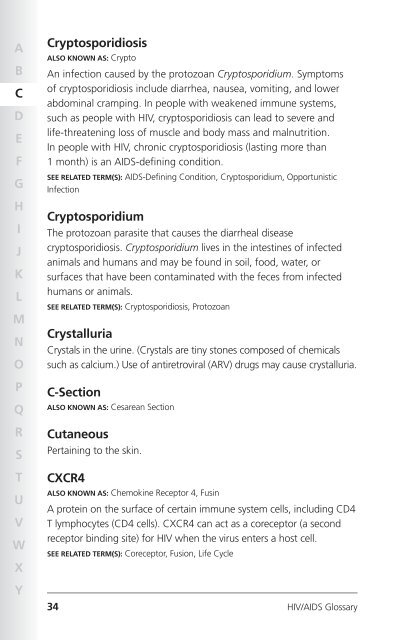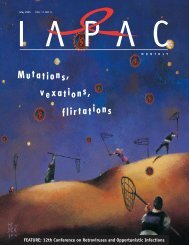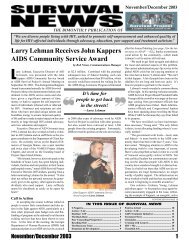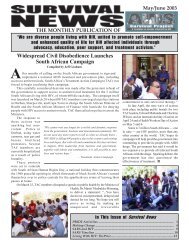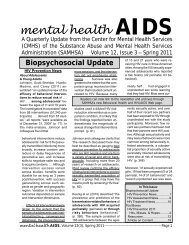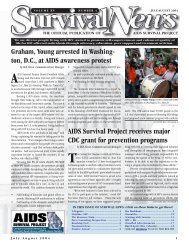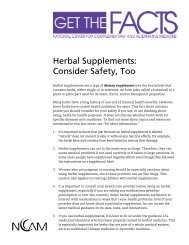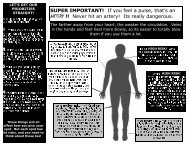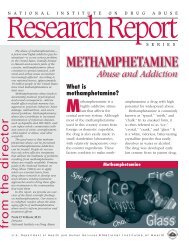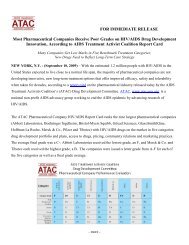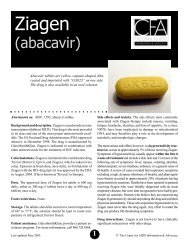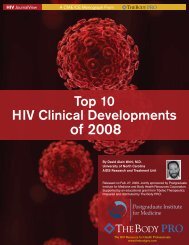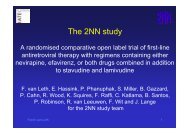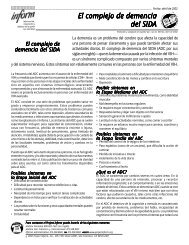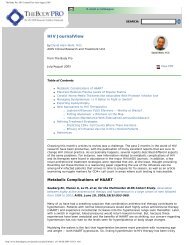Glossary of HIV/AIDS-Related Terms - AIDSinfo - National Institutes ...
Glossary of HIV/AIDS-Related Terms - AIDSinfo - National Institutes ...
Glossary of HIV/AIDS-Related Terms - AIDSinfo - National Institutes ...
You also want an ePaper? Increase the reach of your titles
YUMPU automatically turns print PDFs into web optimized ePapers that Google loves.
A<br />
B<br />
C<br />
D<br />
E<br />
F<br />
G<br />
H<br />
I<br />
J<br />
K<br />
L<br />
M<br />
N<br />
O<br />
P<br />
Q<br />
R<br />
S<br />
T<br />
U<br />
V<br />
W<br />
X<br />
Y<br />
Cryptosporidiosis<br />
ALSO KNOWN AS: Crypto<br />
An infection caused by the protozoan Cryptosporidium. Symptoms<br />
<strong>of</strong> cryptosporidiosis include diarrhea, nausea, vomiting, and lower<br />
abdominal cramping. In people with weakened immune systems,<br />
such as people with <strong>HIV</strong>, cryptosporidiosis can lead to severe and<br />
life-threatening loss <strong>of</strong> muscle and body mass and malnutrition.<br />
In people with <strong>HIV</strong>, chronic cryptosporidiosis (lasting more than<br />
1 month) is an <strong>AIDS</strong>-defining condition.<br />
SEE RELATED TERM(S): <strong>AIDS</strong>-Defining Condition, Cryptosporidium, Opportunistic<br />
Infection<br />
Cryptosporidium<br />
The protozoan parasite that causes the diarrheal disease<br />
cryptosporidiosis. Cryptosporidium lives in the intestines <strong>of</strong> infected<br />
animals and humans and may be found in soil, food, water, or<br />
surfaces that have been contaminated with the feces from infected<br />
humans or animals.<br />
SEE RELATED TERM(S): Cryptosporidiosis, Protozoan<br />
Crystalluria<br />
Crystals in the urine. (Crystals are tiny stones composed <strong>of</strong> chemicals<br />
such as calcium.) Use <strong>of</strong> antiretroviral (ARV) drugs may cause crystalluria.<br />
C-Section<br />
ALSO KNOWN AS: Cesarean Section<br />
Cutaneous<br />
Pertaining to the skin.<br />
CXCR4<br />
ALSO KNOWN AS: Chemokine Receptor 4, Fusin<br />
A protein on the surface <strong>of</strong> certain immune system cells, including CD4<br />
T lymphocytes (CD4 cells). CXCR4 can act as a coreceptor (a second<br />
receptor binding site) for <strong>HIV</strong> when the virus enters a host cell.<br />
SEE RELATED TERM(S): Coreceptor, Fusion, Life Cycle<br />
34 <strong>HIV</strong>/<strong>AIDS</strong> <strong>Glossary</strong>


